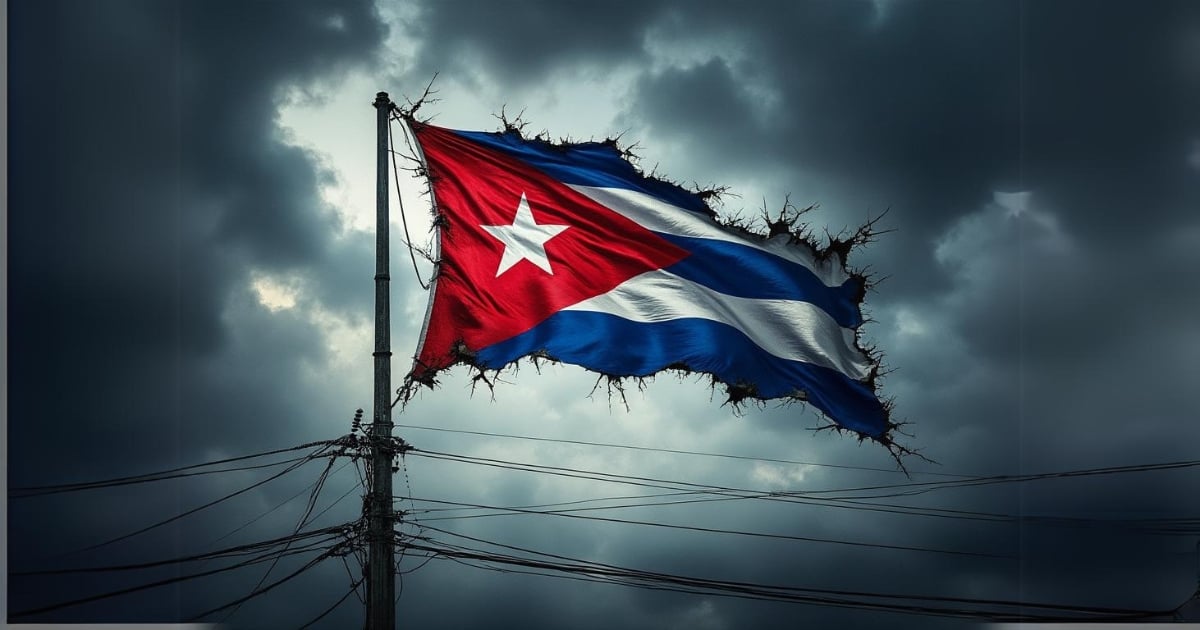The ongoing energy crisis in Cuba has once again highlighted the glaring failures in the management of the communist regime that has held power since 1959. The island's persistent blackouts have become intolerable, severely disrupting the lives of millions of Cubans. The collapse of the electrical grid, characterized by widespread outages, has plunged the entire nation into a state of emergency. This is not a new issue but rather an escalation of a structural crisis that has been festering for decades. Despite attempts to blame the U.S. embargo, many critical voices argue that the root of the problem lies in poor planning and misguided internal decisions by the government.
Government's Inability to Solve the Energy Crisis
President Miguel Díaz-Canel has continued to point fingers at the "tightened blockade" by the United States as the primary reason for the island's energy woes. However, economists like Pedro Monreal have challenged this narrative, emphasizing that the country faces not just a "challenge" but a "bankruptcy caused by internal decisions." The lack of effective investment in critical infrastructure, such as the power grid, while pouring substantial funds into sectors like tourism, has sparked widespread discontent among the population. Official data shows that investments in tourism far exceed those in essential areas like health and social services, a fact not lost on the Cuban people.
In a bid to ease the situation, the government announced the suspension of administrative and educational activities for several days, attributing this to the work needed to restore the national electrical system. Nonetheless, this measure has been met with skepticism and frustration, as a short-term solution to the collapse of the electrical grid, triggered by the disconnection of the Antonio Guiteras thermoelectric plant, seems elusive. The situation has become critical, leaving millions without power and halting many vital activities across the country.
International Spotlight and Citizen Outrage
Meanwhile, international media has underscored the impact of these blackouts on a population already grappling with shortages of food and medicine. Outlets like The New York Times and CNN have reported live on the severity of the energy crisis, highlighting the growing frustration among Cubans as the situation worsens daily.
Amidst this crisis, leaders have resorted to firing officials such as the governor and vice governor of Las Tunas, citing "mistakes made" in their duties. However, these actions are perceived as attempts to divert attention without addressing the crisis's underlying causes. Similar scenarios have unfolded in other provinces, revealing deep instability in local administration and political management.
Public Outcry for Change in Cuba
On the other hand, the public's response has been emphatic. Through social media, Cubans have voiced their dissatisfaction with critical messages towards the leaders, demanding profound changes in the government's structure. Phrases like "How much longer?" or "Let them leave and hand over the country" have proliferated, reflecting a sentiment of exasperation over the lack of real solutions. These reactions, though significant, have not been enough to prompt a shift in the leaders' course of action, who cling to the same justifications and measures without acknowledging their mistakes.
In the midst of Cuba's energy crisis, public figures and citizens have expressed their frustration and exhaustion over the prolonged blackouts. Vedette Rebeca Martínez took to social media to share her resignation, stating she was "in hibernation mode until the lights come back" after several days without electricity. Meanwhile, artists like Yomil Hidalgo and Daniela Reyes lamented the situation, describing it as "ugly" and sad, as they watched Havana residents sit on the sidewalks waiting for the power to return. In Miami, Willy Chirino, Leoni Torres, and La Diosa sent messages of solidarity, with the latter asserting that Cubans are being "killed slowly in life." Additionally, activist Adelth Bonne shared his experience in Havana, stating he had lost all his food after 52 hours without power, and denounced the constant harassment by police patrols in his neighborhood. In contrast, some Cuban citizens have attempted to use humor to cope with the situation, while indignation and concern over the lack of effective solutions spread across the nation.
Ultimately, the situation in Cuba remains alarming, with an electrical system on the brink of collapse, a population facing significant hardships, and a government unable to provide effective solutions. The Cuban leadership, far from acknowledging their errors and seeking viable alternatives, continues to use narratives of justification that increasingly fail to convince a weary citizenry. Meanwhile, the voices demanding real and profound change on the island continue to grow.
